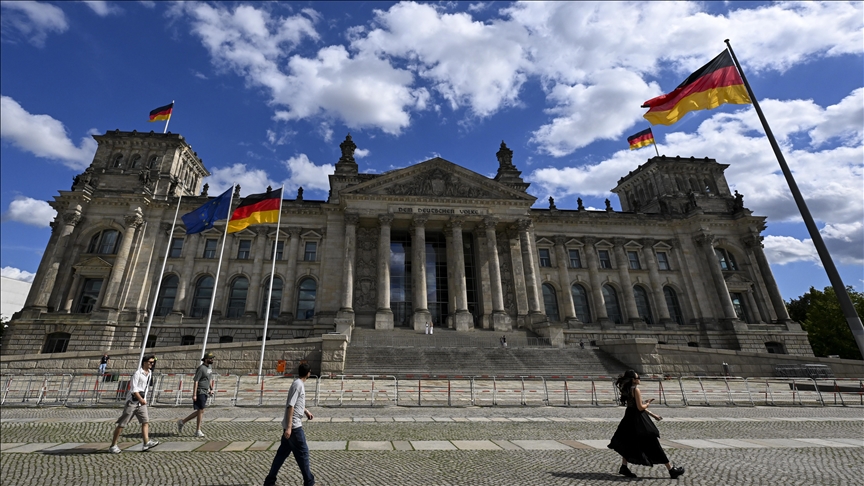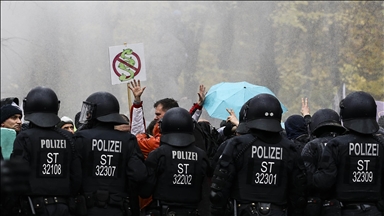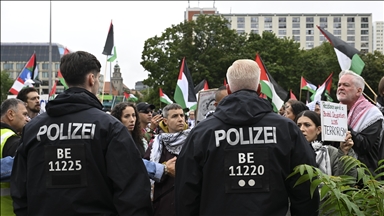German parliament gets 150,000 signatures demanding justice for neo-Nazi terror victims
Family members of victims killed by NSU terror group oppose early release of convicted terrorist Beate Zschaepe
 German Parliament
German Parliament
BERLIN
Family members of victims killed by a neo-Nazi terror group delivered more than 150,000 petition signatures to German lawmakers Friday, demanding that convicted terrorist Beate Zschaepe not be granted early release from prison.
Semiya Simsek, Gamze Kubasik, Mandy Boulgarides—daughters of NSU terror victims—presented the signatures during a demonstration outside the German parliament building. Lawmakers from the Social Democratic Party, Greens, and Left Party received the petition.
Semiya Simsek, whose father Enver was shot to death by NSU terrorists in Nuremberg in 2000, told reporters that Zschaepe—a key member of the terror group who has remained silent and refused to cooperate with investigations so far—should not receive early release from prison.
"When I think of my father, I suffer deeply. This pain doesn't fade over time. On the contrary, it grows with each passing day. I miss him every day, and I still wonder why this happened to him and why those who aided the murders and their accomplices are still walking around freely," Simsek said.
She thanked those who signed the petition and said they will continue to demand justice and further investigation into the NSU terror group and its wider support network.
Beate Zschaepe, a central figure in the far-right NSU terror group, received a life sentence in 2018 for her involvement in the murders. Throughout her trial, she remained completely silent, expressed no remorse, and refused to reveal any information about the terror group. After multiple attempts, her acceptance into the EXIT rehabilitation program in 2025 has opened the possibility of prison release in the coming years.
Gamze Kubasik, whose father, Mehmet, was killed by the NSU terror group in 2006, criticized German authorities for failing to conduct an effective investigation and leaving many questions unanswered.
"We didn't just lose our fathers. We also lost our trust and our security," she told reporters. "We feel the German state does not care about our pain. How can a perpetrator receive support while those left behind have had to fight to this day? We don't want special treatment. We want justice."
NSU's racist murders
The NSU is believed to have been founded by neo-Nazis Uwe Mundlos, Uwe Bohnhardt, and Beate Zschaepe. The trio lived underground from 1998 with fake identities.
The German public first learned of the NSU’s existence and its role in the murders on Nov. 4, 2011, when two members of the group, Mundlos and Bohnhardt, committed suicide after an unsuccessful bank robbery. The police found evidence in their apartment showing they were behind the murders.
Until 2011, Germany's police and intelligence services dismissed any racial motive for the murders and instead treated immigrant families as suspects with connections to mafia groups and drug traffickers.
Recent media revelations have shown that the country’s domestic intelligence agency BfV and its local branches had dozens of informants who had contacts with the NSU suspects in the past. But officials insisted that they had no prior information about the existence of the NSU terror cell or its role behind the killings.
The NSU scandal has initiated a broader discussion in Germany regarding institutional racism and the shortcomings of German security and intelligence organizations, which have faced criticism for underestimating the threat posed by far-right extremism.
Anadolu Agency website contains only a portion of the news stories offered to subscribers in the AA News Broadcasting System (HAS), and in summarized form. Please contact us for subscription options.







